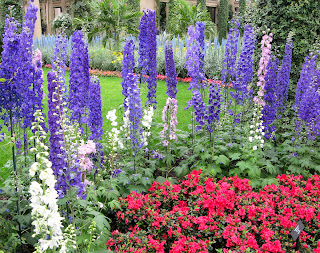Today I have been speaking from dawn until now, yet because of love, fellowship and desire to be with you, I have come here to speak again briefly. Within the last few days a terrible event has happened in the world, an event saddening to every heart and grieving every spirit. I refer to the Titanic disaster, in which many of our fellow human beings were drowned, a number of beautiful souls passed beyond this earthly life. Although such an event is indeed regrettable, we must realize that everything which happens is due to some wisdom and that nothing happens without a reason. Therein is a mystery; but whatever the reason and mystery, it was a very sad occurrence, one which brought tears to many eyes and distress to many souls. I was greatly affected by this disaster. Some of those who were lost voyaged on the Cedric with us as far as Naples and afterward sailed upon the other ship. When I think of them, I am very sad indeed. But when I consider this calamity in another aspect, I am consoled by the realization that the worlds of God are infinite; that though they were deprived of this existence, they have other opportunities in the life beyond, even as Christ has said, “In my Father’s house are many mansions.” They were called away from the temporary and transferred to the eternal; they abandoned this material existence and entered the portals of the spiritual world. Foregoing the pleasures and comforts of the earthly, they now partake of a joy and happiness far more abiding and real, for they have hastened to the Kingdom of God. The mercy of God is infinite, and it is our duty to remember these departed souls in our prayers and supplications that they may draw nearer and nearer to the Source itself.
These human conditions may be likened to the matrix of the mother from which a child is to be born into the spacious outer world. At first the infant finds it very difficult to reconcile itself to its new existence. It cries as if not wishing to be separated from its narrow abode and imagining that life is restricted to that limited space. It is reluctant to leave its home, but nature forces it into this world. Having come into its new conditions, it finds that it has passed from darkness into a sphere of radiance; from gloomy and restricted surroundings it has been transferred to a spacious and delightful environment. Its nourishment was the blood of the mother; now it finds delicious food to enjoy. Its new life is filled with brightness and beauty; it looks with wonder and delight upon the mountains, meadows and fields of green, the rivers and fountains, the wonderful stars; it breathes the life-quickening atmosphere; and then it praises God for its release from the confinement of its former condition and attainment to the freedom of a new realm. This analogy expresses the relation of the temporal world to the life hereafter—the transition of the soul of man from darkness and uncertainty to the light and reality of the eternal Kingdom. At first it is very difficult to welcome death, but after attaining its new condition the soul is grateful, for it has been released from the bondage of the limited to enjoy the liberties of the unlimited. It has been freed from a world of sorrow, grief and trials to live in a world of unending bliss and joy. The phenomenal and physical have been abandoned in order that it may attain the opportunities of the ideal and spiritual. Therefore, the souls of those who have passed away from earth and completed their span of mortal pilgrimage in the Titanic disaster have hastened to a world superior to this. They have soared away from these conditions of darkness and dim vision into the realm of light. These are the only considerations which can comfort and console those whom they have left behind.'Abdu'l-Baha, The Promulgation of Universal Peace
Furthermore, these events have deeper reasons. Their object and purpose is to teach man certain lessons. We are living in a day of reliance upon material conditions. Men imagine that the great size and strength of a ship, the perfection of machinery or the skill of a navigator will ensure safety, but these disasters sometimes take place that men may know that God is the real Protector. If it be the will of God to protect man, a little ship may escape destruction, whereas the greatest and most perfectly constructed vessel with the best and most skillful navigator may not survive a danger such as was present on the ocean. The purpose is that the people of the world may turn to God, the One Protector; that human souls may rely upon His preservation and know that He is the real safety. These events happen in order that man’s faith may be increased and strengthened. Therefore, although we feel sad and disheartened, we must supplicate God to turn our hearts to the Kingdom and pray for these departed souls with faith in His infinite mercy so that, although they have been deprived of this earthly life, they may enjoy a new existence in the supreme mansions of the Heavenly Father.
Let no one imagine that these words imply that man should not be thorough and careful in his undertakings. God has endowed man with intelligence so that he may safeguard and protect himself. Therefore, he must provide and surround himself with all that scientific skill can produce. He must be deliberate, thoughtful and thorough in his purposes, build the best ship and provide the most experienced captain; yet, withal, let him rely upon God and consider God as the one Keeper. If God protects, nothing can imperil man’s safety; and if it be not His will to safeguard, no amount of preparation and precaution will avail.
How are these words of 'Abdu'l-Baha still relevant today?


